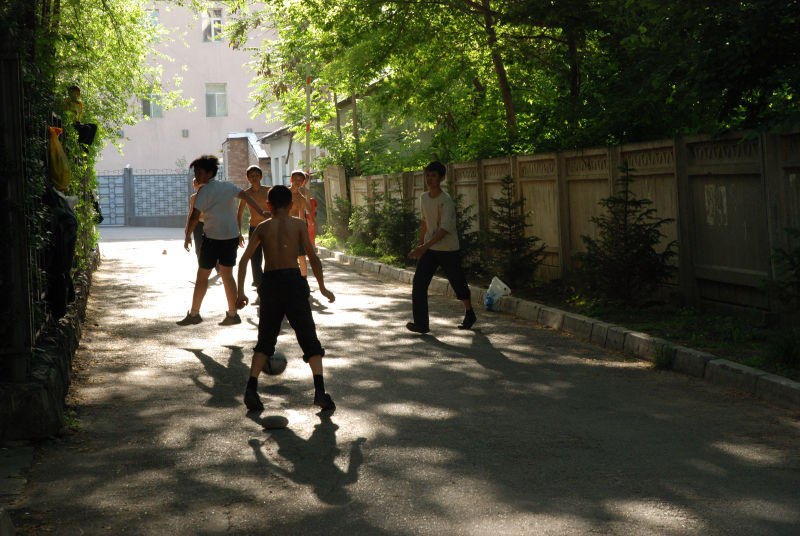
In May, beyond the urban center of Bishkek, these summer pastures are beckoning. The sacred, fought-for autonomy of families and tribes in the wild. Here once stood the traditions of survival and autonomy: beautiful color woven into the vast expanse. Balance and respect. Symbols bursting with meanings, interiorized and innate. Symbols of lives, woven, sewn and chiseled into rock and into crafts: arrows of departure and return. A rhombus for the world, for the patronage of the family: protecting and encompassing. Rams horns for wealth and prosperity, bird wings for flight and inspiration.
And at the center of the world, the opening. The yurt center, the Tunduk. Open to the stars, to the worship of the sun and the rain. The continuing importance of this symbol is embodied by the Kyrgyz flag on whose center reigns the Tunduk. red, daring.
Yurts are aperture: an architecture for the infinite.
There is a sacred to this place, still felt silently in the city. This is a people who could live in the wild – I imagine it to be a fierce knowledge, an autonomy among the chaos of the world. A love of freedom. Some gestures remain: an amen at the end of tea and bread. Guests entering when they appear. doors open, no need for phone calls or preparation. Here is a time made for guests and welcoming: the values of the wild mountains.
And among this mountain sacred – an urban center, open to the modern, bustling, global world.
In its architecture and layout, Bishkek is a Soviet City, a capital of culture and administration. Theatres, parks, administrative buildings, schools, it is outfitted for urban exploration. It is a cacophony of languages and faces, Kyrgyz, Uzbek, Tajik, Kazakh, Chinese, Turkish, Indian, Uighour, Dungans, – French of course. Here the world collides. Faces. Postures. Fragrance. It is a city of movement.
The roads however are a catastrophe, an obstacle course of holes and crevices. The parks and sidewalks have not been weeded in years it seems. The street lights have not been fixed in decades. It is a city that blacks-out at night: not one streetlight for the late-night reveler. It seems that the administrative and physical upkeep of the city stopped when the Russians left. The people of Bishkek are now making due with the eroding infrastructure – decrepit enough to wonder what will happen to the city when the infrastructure really crumbles.
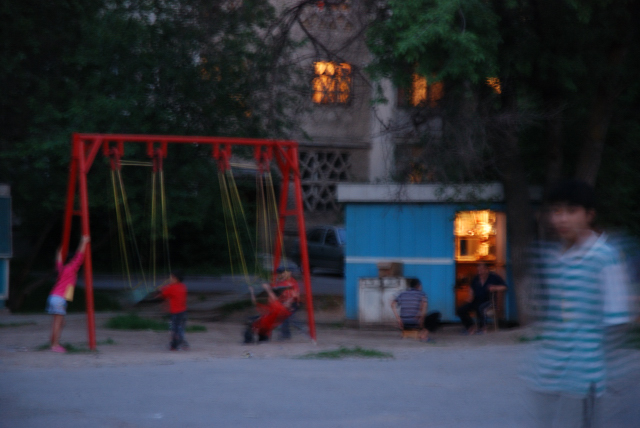
But Bishkek remains a true urban center. The city is a dance of femininity, unveiled, untempered. The streets are a competition of mini-skirts, a tik tak rhythm of high heels, a web of fish-net stockings. Though small by comparison to any other global city, Bishkek is an urban center in every sense of the word. A place of concentrated means and creativity, a place of open mores and values. The urban distance giving the anonymity and freedom to explore beyond traditional values, and the indifference or wisdom to accept difference.
And yet here in the city, traditions still enter and thrive. Surrounded mainly by women here – I hear mainly of the values that affect them. Virginity is still key – to be protected, sheltered and valued. Surgery to sew up the hymen is common, though completely confidential and low-key. Sexual freedom is in getting sewed back up. Women get married early – 23 is often considered old for marriage. When people ask me how many children I have, they are surprised that at 27, I am not even married. Women are more numerous than men here and so the competition for marriage is great, as is the shame of not finding a partner.
The city has not changed this altogether. The pressure seeps in from families in rural centers and time-old traditions.
But there are those more delicate and (what I think are) good traditions that are felt here too. The spiritual and the sacred. The mountains seen from the city. Pictures of Manas – the Kyrgyz warrior – etched on city walls. A woman’s arms extended to the skies. Color. The golden toothed smiles. The long greetings. The forms of politness: Aka, Apa. The sacred balance of respect and rules. Traditional proverbs, stories told. The sound of Ordo Sakhna. The swinging hips of gypsy women.
Bishkek is a city alive. The mountains are close by.
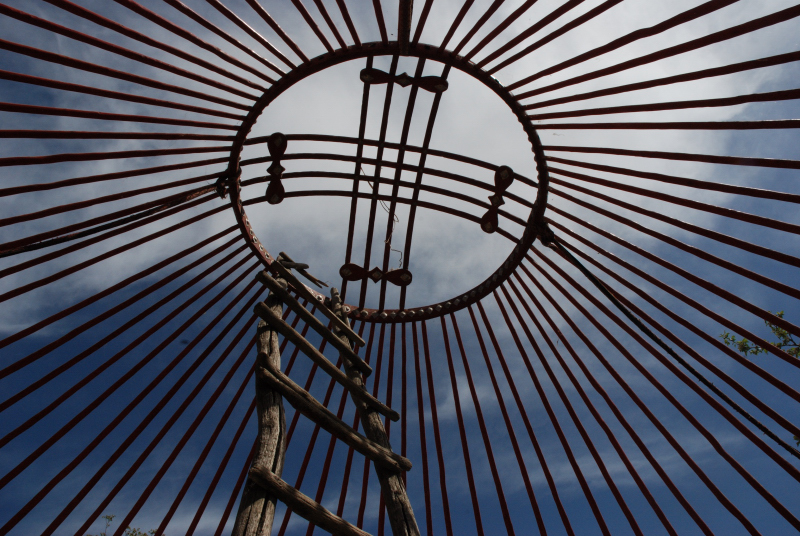
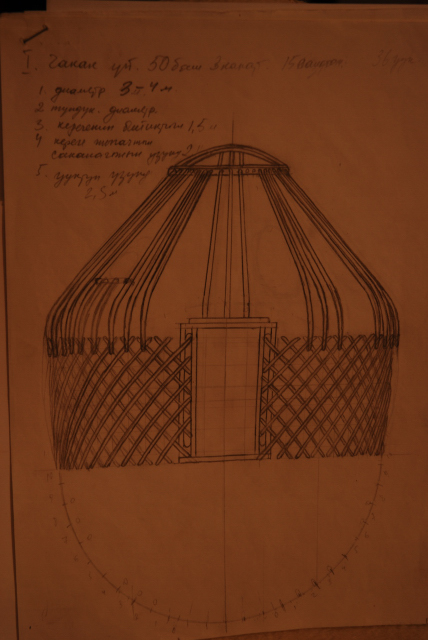
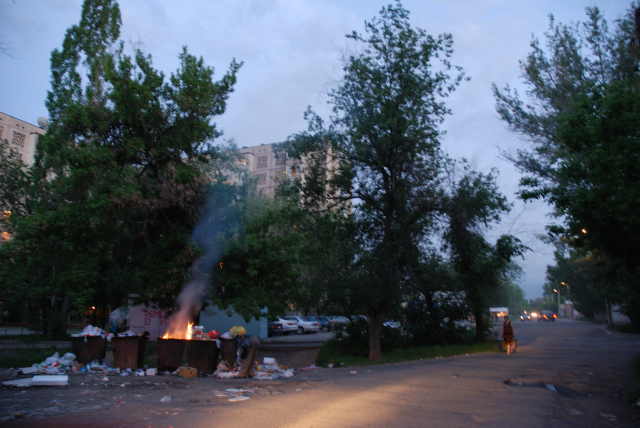

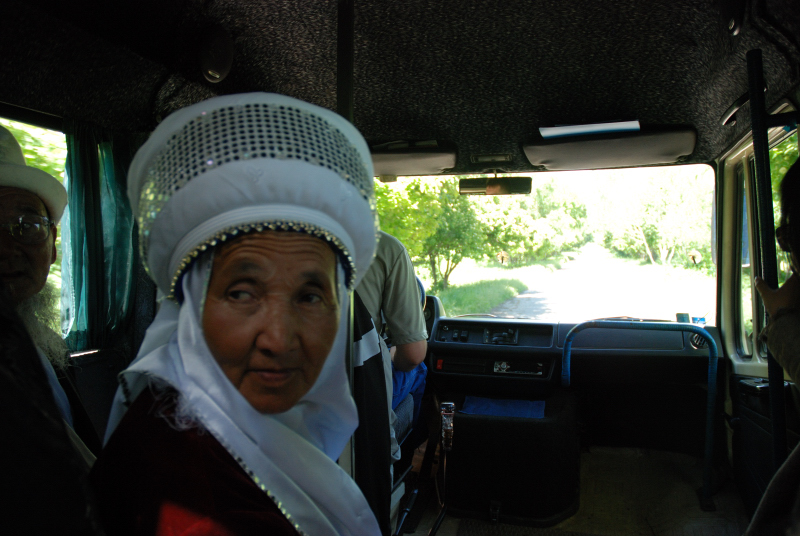

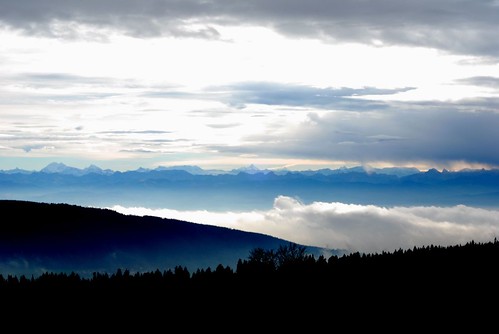
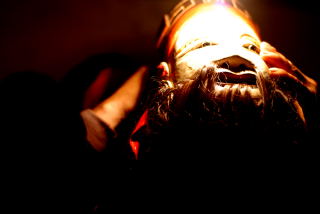
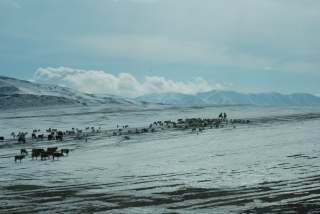
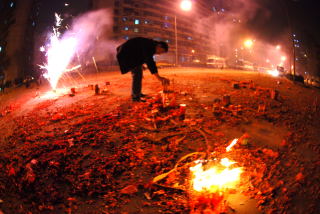
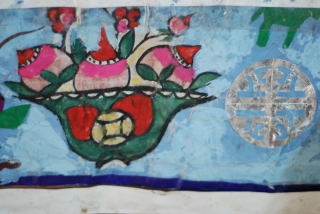

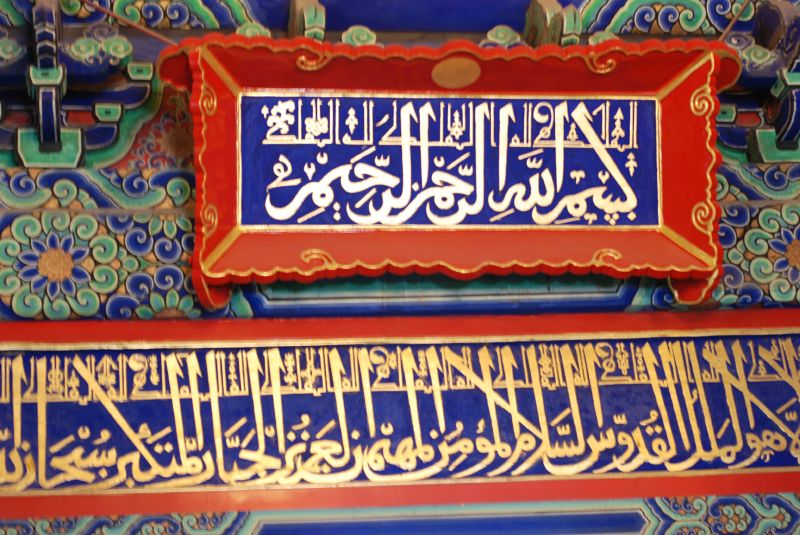
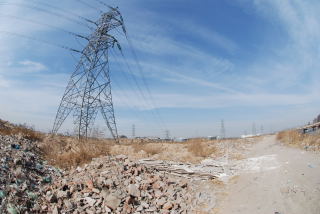
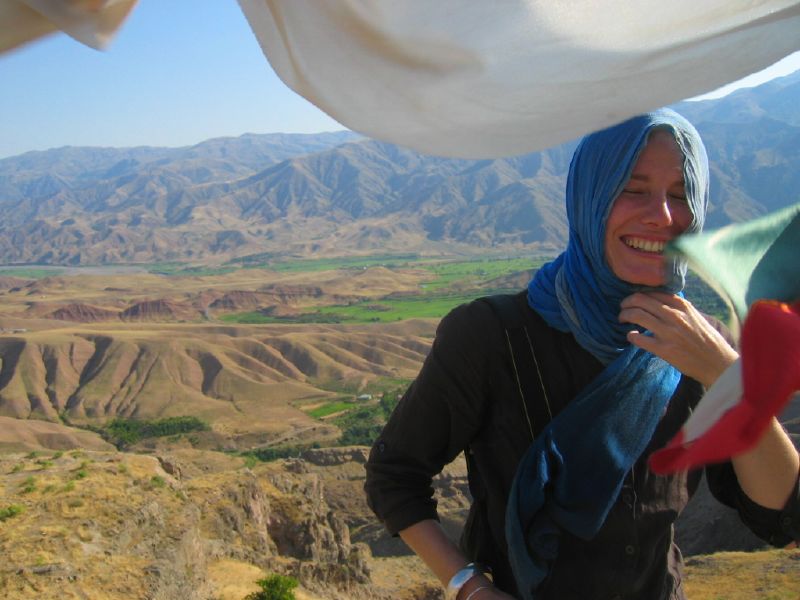
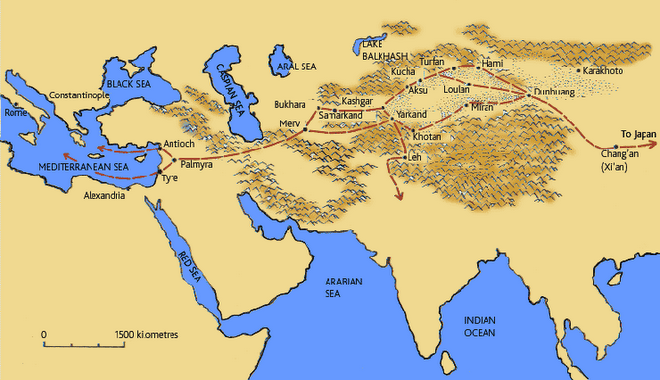
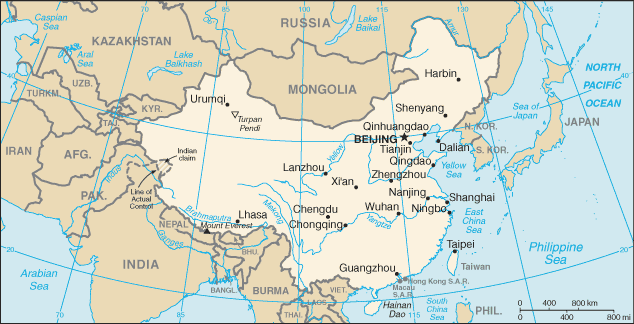
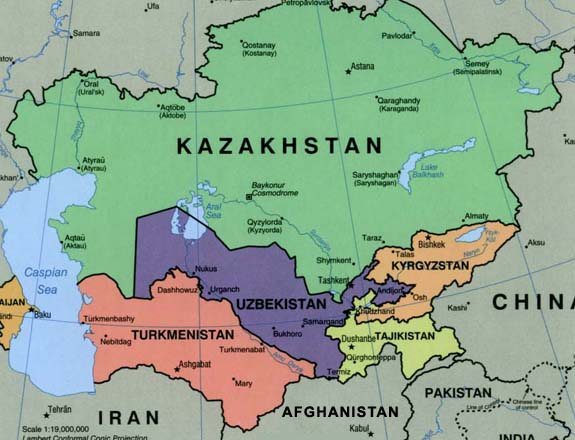
No comments:
Post a Comment